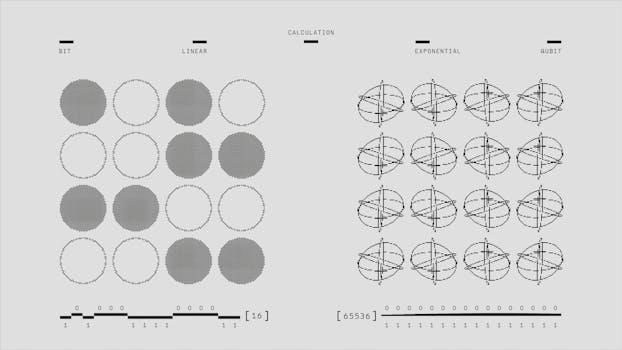The Impact of Quantum Processors on Computing Speed and Solving Complex Optimization Problems
In the rapidly evolving landscape of technology, quantum computing stands out as a revolutionary advancement that promises to redefine the boundaries of computational power. Unlike classical computers, which process information in binary (0s and 1s), quantum processors utilize the principles of quantum mechanics to perform calculations at unprecedented speeds. This article explores the impact of quantum processors on computing speed and their potential to solve complex optimization problems that have long challenged traditional computing methods.
Understanding Quantum Processors
Quantum processors are built on the principles of quantum bits, or qubits, which can exist in multiple states simultaneously due to superposition. This characteristic allows quantum computers to process vast amounts of data concurrently, significantly enhancing their computational capabilities. Additionally, qubits can be entangled, meaning the state of one qubit can depend on the state of another, enabling complex problem-solving that classical computers struggle to achieve.
Key Features of Quantum Processors
- Superposition: Qubits can represent both 0 and 1 at the same time, allowing for parallel processing.
- Entanglement: Qubits can be interconnected, leading to faster information transfer and processing.
- Quantum Interference: Quantum algorithms can amplify correct paths and cancel out incorrect ones, optimizing problem-solving.
Enhancing Computing Speed
The speed of quantum processors is one of their most significant advantages. Quantum algorithms, such as Shor’s algorithm for factoring large numbers and Grover’s algorithm for searching unsorted databases, demonstrate the potential for exponential speedup over classical counterparts. For instance, Shor’s algorithm can factor a number in polynomial time, while the best-known classical algorithm takes exponential time.
Real-World Examples of Speed Improvements
Several organizations are already harnessing the power of quantum processors to achieve remarkable speed improvements:
- Google: In 2019, Google claimed to have achieved “quantum supremacy” by performing a specific calculation in 200 seconds that would take the most powerful classical supercomputer approximately 10,000 years.
- IBM: IBM’s quantum computers are being used to optimize supply chain logistics, significantly reducing the time required to find optimal solutions.
- D-Wave: D-Wave’s quantum annealers are being utilized in various industries, including finance and pharmaceuticals, to solve complex optimization problems faster than classical methods.
Solving Complex Optimization Problems
Optimization problems are prevalent across various fields, including logistics, finance, and machine learning. These problems often involve finding the best solution from a vast set of possibilities, which can be computationally intensive for classical computers. Quantum processors offer a new approach to tackling these challenges.
Applications in Optimization
Quantum computing has the potential to revolutionize optimization in several key areas:
- Logistics: Companies can optimize delivery routes and inventory management, reducing costs and improving efficiency.
- Finance: Quantum algorithms can enhance portfolio optimization and risk assessment, leading to better investment strategies.
- Machine Learning: Quantum processors can accelerate training times for complex models, enabling faster insights from large datasets.
Challenges and Future Prospects
Despite the promising capabilities of quantum processors, several challenges remain. Issues such as qubit coherence, error rates, and the need for specialized algorithms must be addressed before quantum computing can be fully realized in practical applications. However, ongoing research and development are paving the way for advancements in quantum technology.
Looking Ahead
The future of quantum computing is bright, with significant investments from both private and public sectors. As technology matures, we can expect:
- Increased accessibility to quantum computing resources through cloud platforms.
- Development of hybrid algorithms that combine classical and quantum computing techniques.
- Broader adoption across industries, leading to innovative solutions to complex problems.
Conclusion
Quantum processors represent a paradigm shift in computing, offering unparalleled speed and the ability to solve complex optimization problems that have long eluded classical computers. As organizations continue to explore the potential of quantum technology, we can anticipate significant advancements that will transform industries and enhance our problem-solving capabilities. While challenges remain, the journey toward harnessing the full power of quantum computing is well underway, promising a future where complex optimization becomes not just feasible but efficient and effective.
